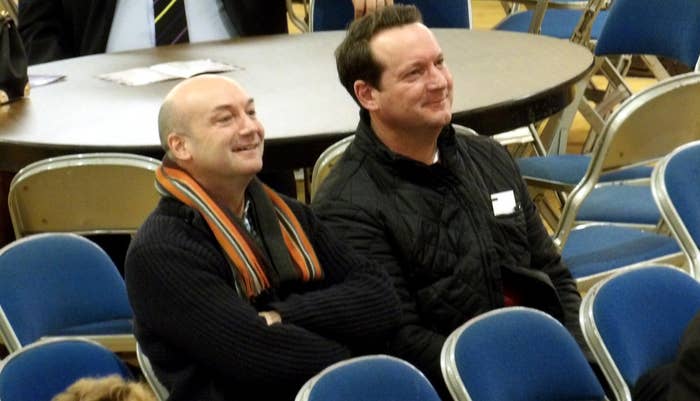
HARTLEPOOL – Speaking to the assembled audience at UKIP's North East regional party conference in Hartlepool's Borough Hall, Nigel Farage made a bold prediction about the 2015 general election: He believes UKIP will come at least second in every parliamentary contest in the North East in May.
In the Labour-voting heartlands of the North East, this might seem unlikely, especially since UKIP took just 7% of the vote in Hartlepool at the 2010 general election. But since then the party has come top in the town's European election polling in 2014, and has already taken some town council seats.
Talk to brothers John and Darren Hogg, two of around 180 people who listened to Farage make his prophecy, and the projection of UKIP as the North East's second party seems feasible.
The Hoggs aren't what most people think of when picturing UKIP voters. They live in Middlesbrough, work at BT and Royal Mail respectively, define themselves as working-class, and voted Labour for most of their lives. But they are exactly the sort of people whose votes are likely to make or break the prediction.
Their 73-year-old father, now retired, was a shop steward working at Tees Dock in Middlesbrough, and used to be a lifelong Labour voter. Now the Hoggs' parents vote UKIP.
The first to shift from Labour to UKIP was 48-year-old Darren, the elder of the pair. "I voted Labour all my life and was totally disillusioned," he said on the conference floor. "Our whole family are working-class Middlesbrough lads, and I could see there was something fundamentally wrong at the top of politics. All the three main parties have one set of ideals; you're not allowed to differ from them. If you do you're branded something."
Once one brother voted UKIP, other members of the family did. It became a conversation around the dinner table. "You go round our mam and dad's and you're talking about politics and the news," Darren said, "and the message initially was: 'There is no hope any more. Labour doesn't represent us, speak for us, there's no hope.'
"It went from that conversation to: 'Have you seen Nigel Farage of UKIP – he said some great things the other day.' You'd say this in conversation and gradually our dad would say, 'Oh, I'm going to vote UKIP this time around.'"
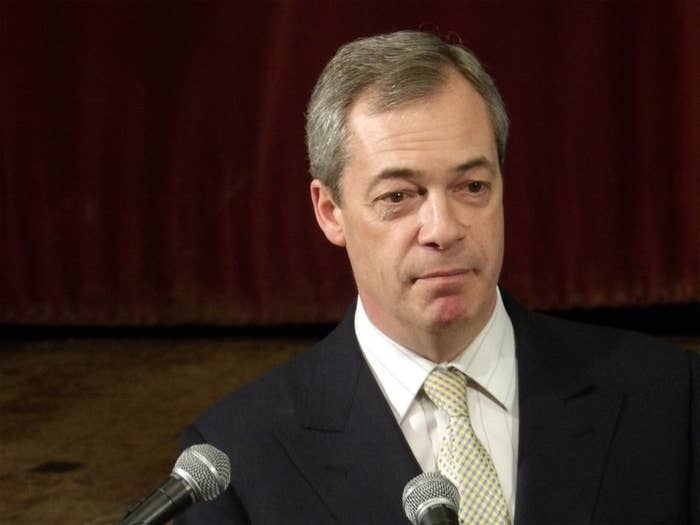
As staunch trade unionists for most of their lives, the Hoggs' transition to UKIP might be surprising. But both brothers shun another label commonly affixed to the party: John, 47, a shop steward at age 18 for the Transport and General Workers Union and now a paid-up member of UKIP, said: "I don't see UKIP as a right-wing party."
The left-leaning tendencies of people in the North East make Farage's prediction of UKIP competitiveness seem outwardly odd. But neither brother feels they can return to voting for Labour. "There's no socialist left any more," John said. "They're gone. They're all centralists."
It's this niche – people such as the Hogg brothers who feel Labour has moved away from its ideals as politics has become professionalised and press-averse – that UKIP feels it can exploit in this region.
"I talk to people at work – I work for Royal Mail," says Darren. "I'm a working-class lad. They are working-class lads. I've worked there 30 years. Until recently they've never mentioned politics. There's a good dozen of them who I know voted UKIP in the last by-election. That's quite amazing, really, to even get to that number."
At John's workplace, BT, things are similar: "I've noticed a huge difference in the number of men talking politics. They might have different opinions, but they talk. I've noticed going from myself and one other person in a room of about 30 or 40 men, you have maybe 25 men now talking. None support Labour, and these are working-class men. Labour doesn't represent them any more."
It hasn't all been plain sailing for UKIP as it campaigns ahead of May's election, though. After leaving the stage, Farage told BuzzFeed News he no longer feels safe campaigning following last week's forced cancellation of a ribbon-cutting ceremony in Rotherham that was disrupted by a protest.
"I just think it's outrageous," the UKIP leader said. "As I say, protest, disagreement, these are all perfectly normal things, but the stated aim of these people is to stop me speaking. They try and stop my public meetings. They even abuse the public that turn up to my public meetings. This is not right, and I think over the next few weeks you will begin to understand who these people are and who is funding them. All I ask for is that we have peaceful protest in British politics."
Farage dismissed suggestions that he would be forced to step back from frontline campaigning because of the protests, saying: "That can't be the solution.
"The solution in many ways is that we get a police force – and they vary – that does their best to uphold freedom, democracy and free speech."
Farage denied that he has become outspoken about the level and severity of protests against him on the campaign: "I just said I think it's wrong I've been stopped going about my business. The only slightly outspoken thing I've said is my criticism of South Yorkshire police for their behaviour yesterday. But I'm not as outspoken as you chaps always think."
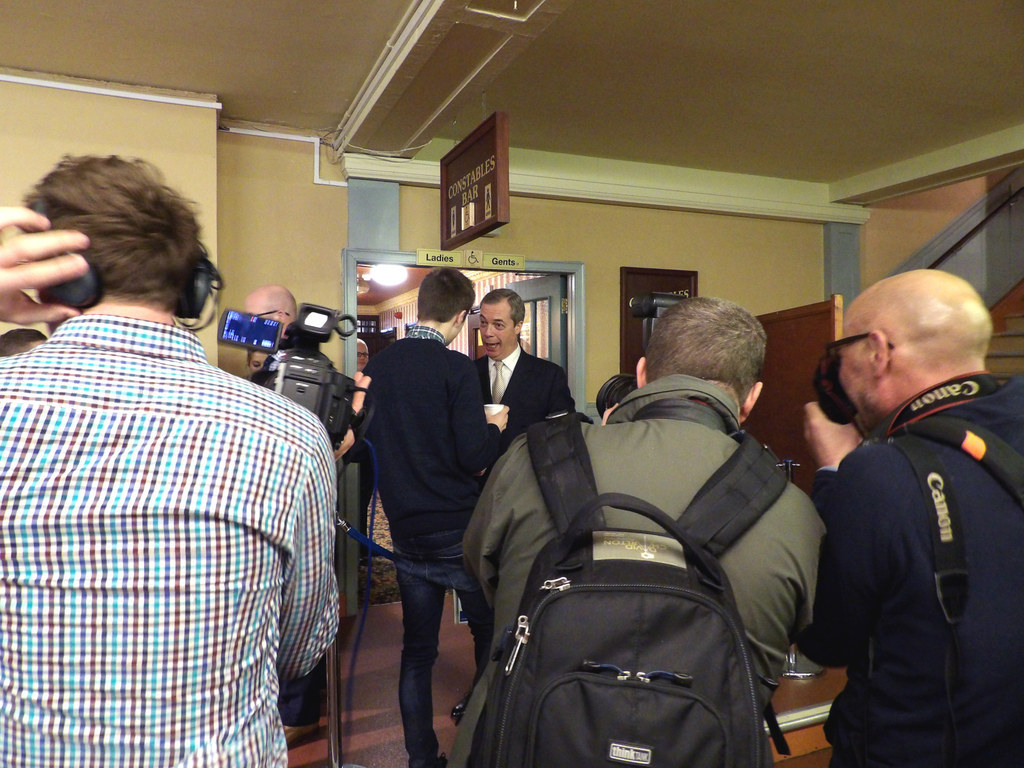
While signing a placard to be auctioned off later that afternoon to a party member, Farage, who wrote in his most recent weekly column for the Daily Express that Dry January had left him suffering from sleeplessness, joked off the notion that the 2015 campaign – the largest in UKIP's history – has been particularly tiring.
"Oh, it's been a tiring 10 years," he said. "Listen, there's nobody else who works at the pace I work at – I do it because I love it, I do it because I enjoy it, I do it because I believe in it, I do it because I believe this is our time. We have to do it now and enjoy it now."
He said: "There's a very good chance that UKIP could find themselves in a similar position to Nick Clegg and the Liberal Democrats five years ago. And if we do that, we will make sure – I will make sure – that we get a full, free, and fair referendum so that we have the opportunity to take back control and ownership of our own country."
Farage refused to speculate on what his role would be if he were not elected to parliament as the UKIP candidate for South Thanet in May – where his rivals include comedian Al Murray, aka the Pub Landlord – but said he was "fighting to win".
"My aim and ambition is to continue this job and to see this thing through," he said. "I think you'll find as far as Thanet South is concerned we're doing a bit better than is generally being talked about. I don't think Al Murray's going to get many votes. He might bring a few more of you chaps down to look, but he's not going to win."
Farage, a UKIP MEP, also spoke out against plans for a UK branch of Pegida, an anti-Islamist campaign group, to hold what it claims will be its first protest in the country in Newcastle later this month.
"If I was living in the North East I wouldn't be turning up to it," he said. "I do understand the concerns that are behind Pegida, but I am deeply suspicious of the people and the motives of those that are running it."
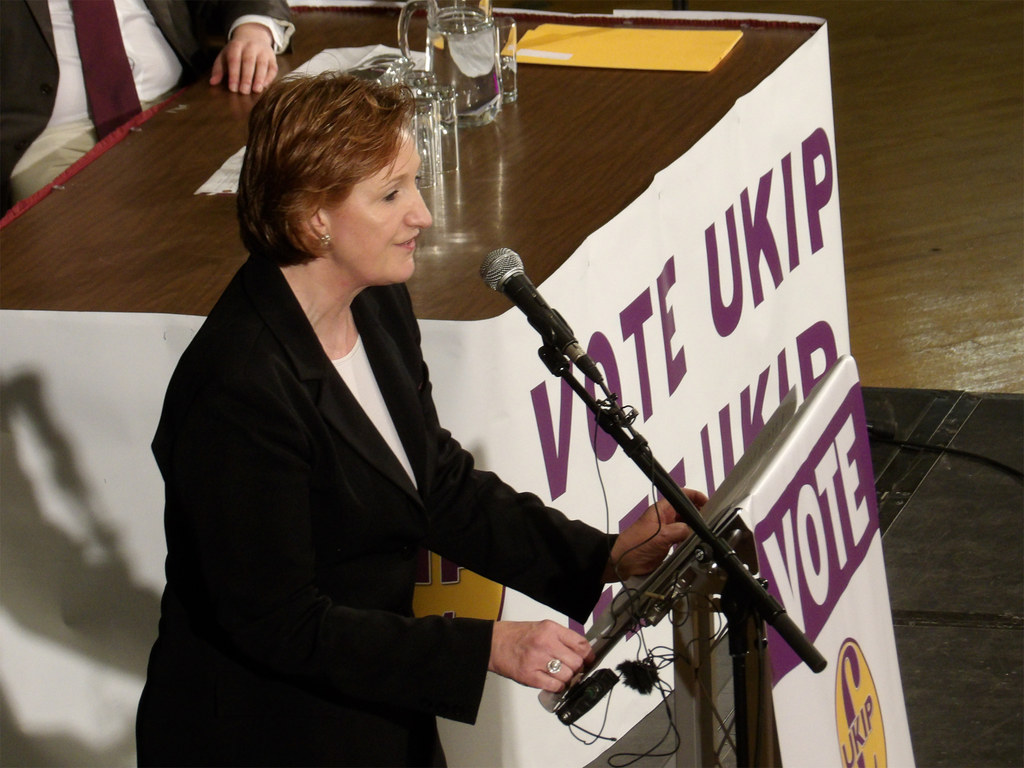
At the conference, other party officials implored the crowd to think big for the UKIP's future in the region, long a Labour heartland.
"Labour left this region to rot," said Suzanne Evans, deputy secretary of UKIP, to some of the most significant applause from attendees. "The north of England is fast becoming UKIP's heartland. We pledge to the people of this region that unlike Labour, unlike the Conservatives, UKIP will not forget them."
Clapping along as loudly as anyone were the brothers Hogg. "I'm gutted the way the Labour party went," said elder brother Darren, a one-time Labour party member. "If the Labour party stayed the same, we wouldn't have to have looked elsewhere.
"I thought, 'I've got nothing, nobody now.' That was until I started investigating this party, which was only tiny when I started looking. I thought, 'At least they are addressing a couple of issues I'm interested in.'"
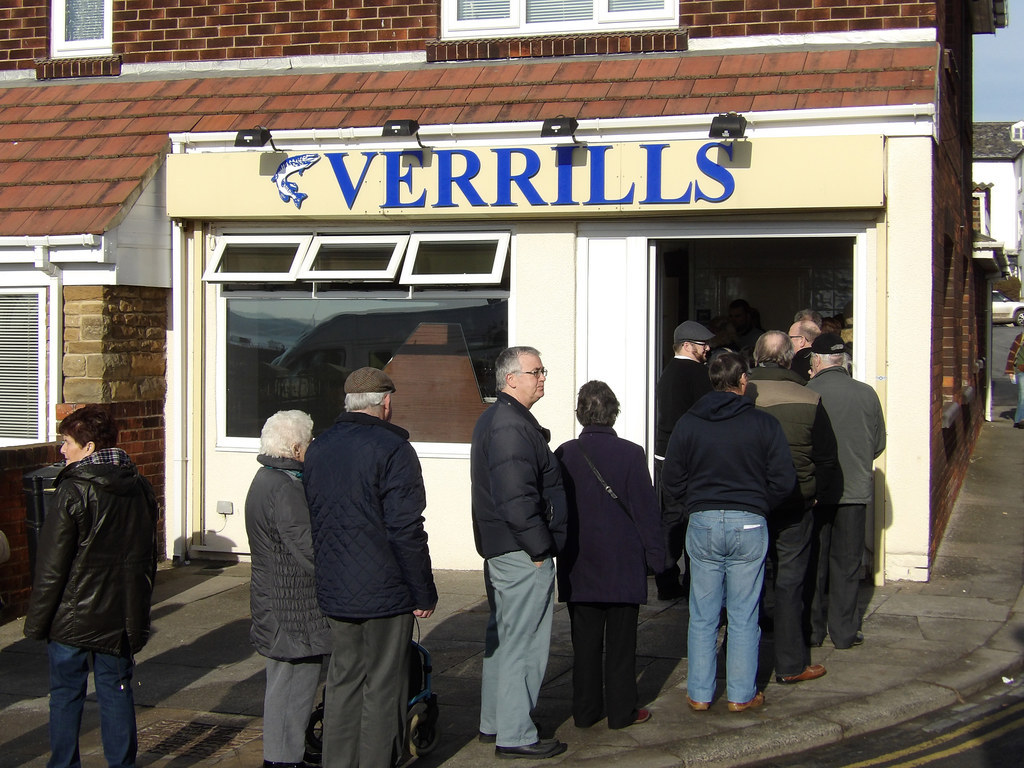
But though many people turned off by politics have turned to UKIP, not everybody has.
Between St Hilda's Parish Church and Borough Hall lies Verrills, a chip shop slung on a street corner on a spit of land that juts out into the North Sea. As the sun warmed their necks, locals queued out the door on a busy lunchtime while conference attendees indoors across the road snacked on sandwiches and corned beef pie.
In the queue was 79-year-old Colin, waiting for cod and chips. Wearing a thick fleece and an easy smile, Colin spoke a little about his life in Hartlepool. His daughter works at the Hartlepool hospital where the threat of service cuts looms, and he used to vote for the Conservatives, but won't be voting UKIP.
He knew the conference was coming to town, and chose not to go.
Why? "Nobody's telling the truth," he said. "I'm disillusioned with politics and the way it's run. All politics. Even Farage."
